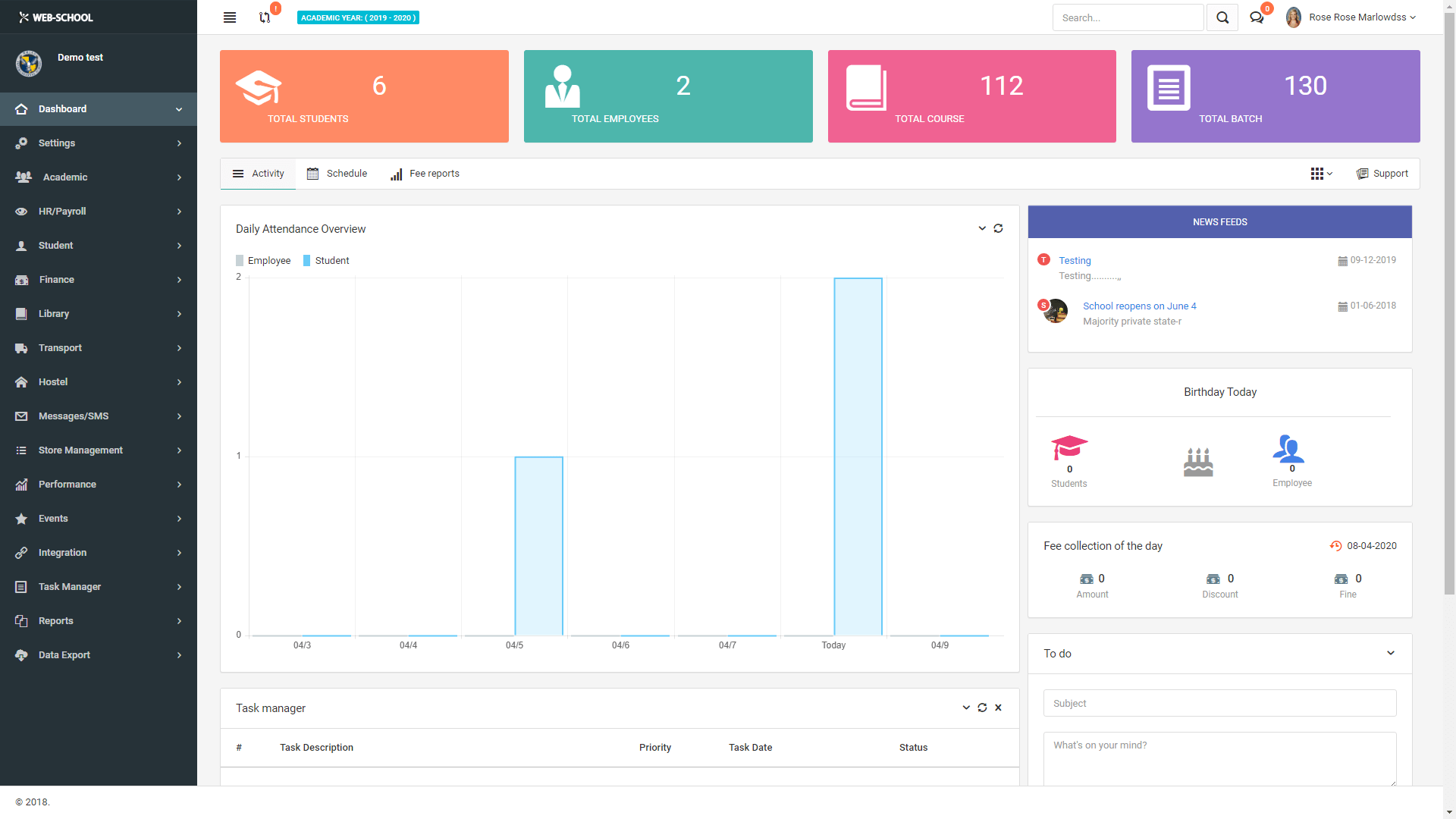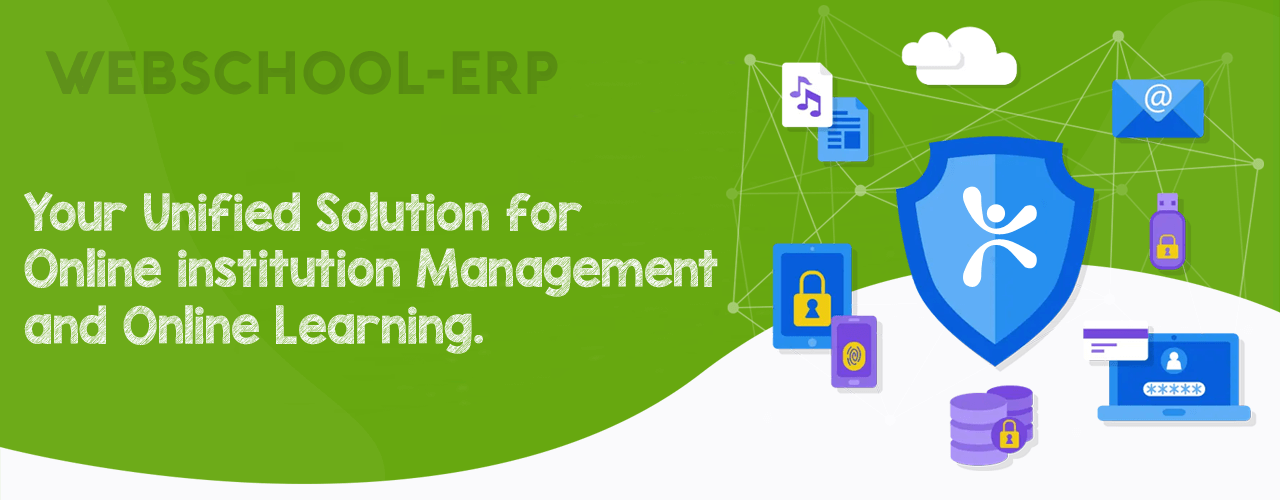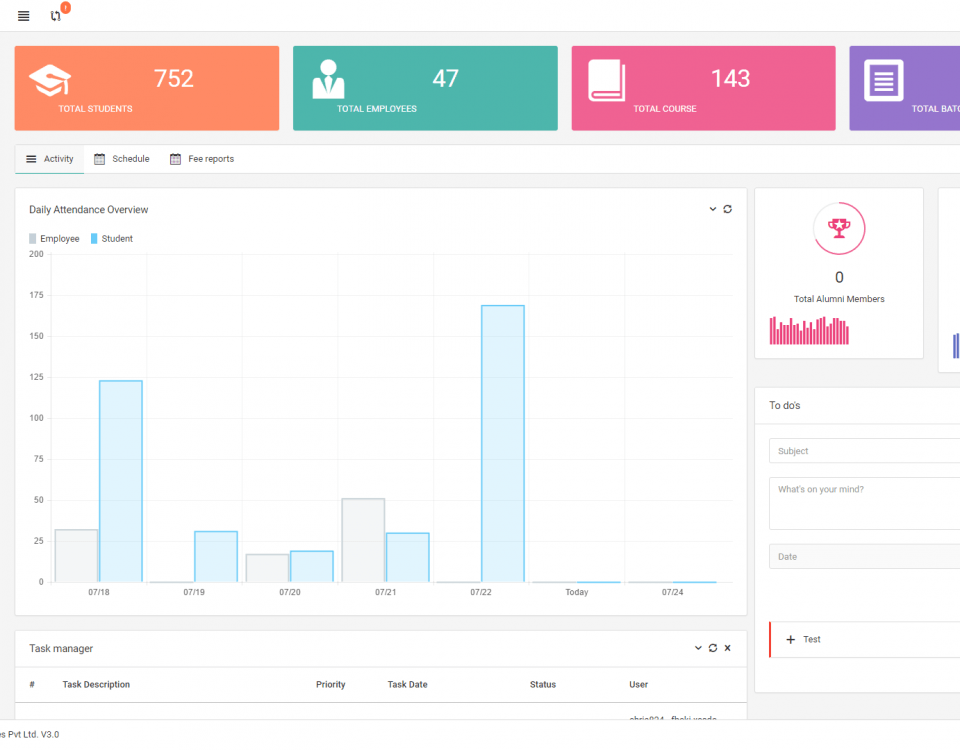
School Management Software: Everything You Need to Know
September 3, 2020
How School Management Software Helps Educational Institutions to Build a Better Environment.
November 22, 2020Accuracy, organization, accessibility, and transparency are the fundamental attributes anticipated by any school administrative system. With the advanced features and proficiency offered by technology since digitization has taken firm hold in the modern civilization, effecting accomplishing the aforementioned qualities with unprecedented ease. Let us explore the indispensable features of the ideal School Management Software.
- Ease of transition and Integration.
Digitization of academic institutions with School Management Software is implemented so that quotidian activities are executed systematically and error-free. However, the best School Management Software should also ensure a seamless transition from traditional to digital model with user-friendly modules available for all potential users from administrative officials to teaching faculty to the student and parent bodies.
- All-in-one capacity
Apart from streamlining the transition, ERP is expected to have an all-encompassing capacity to meet all administrative, monitoring, and interactive features pertinent to the daily activities of an academic institution. For instance, they should make feasible timely data registration, updation, recovery, and storage while concomitantly acting as the portal for updating and or accessing class schedules, accessing student records and reports, and notifying parents of an upcoming PTA meeting, etc. In a gist, any group of valid admins, for whatever purpose login with their credentials to access the ERP, should have their requirements met without any clash with other modules or functions.
- Flexibility, Adaptability and Support
Difference institutions adhere to different systems of organization, examination schedules, grading, etc. Especially in the wake of the pandemic, we have a global shift to digital course lectures and online examinations. A good ERP should offer support for all models of administrative paradigms observed around the globe. For instance, the grading of examinations tends to have a wide variety of patterns across the globe. As a module indispensable yet so variegated, an ERP that readily provides quick support to most major grading standards such as GPA, ICSE, CWA, CCE would gain swift favor amongst the public. Some of the best ERP systems offer the option to choose more than one grading standard to accommodate various courses.
- Customization
An educational institution of the present era represents more than a site for knowledge exchange and pedagogic engagements; rather, every school competes against each other to reflect their brand as the industry leaders. As a result, the need to create, uphold and disseminate the theme and ideals of the institution emerge not only in its codes of conduct but also in its course attributes, syllabus structure, lesson models, examination paradigms, and physical representations. The ERP of your choice should sustain your institution’s vision for ingenuity, creativity, and flexibility. For example, once you select the grading standard, the ERP should readily help you prepare the course, lesson plans, examination schedules, grading model, down to report card template customization.
- Cloud computing
Cloud computing is a self-explanatory feature inextricably tied to the key attributes of the leading School Management Softwares. Administrative records along with academic data should be available for research, editing, and updated at a central cloud location so that ease of accessibility, data recovery, and data security can be ensured.
- Notification features
When performed manually by a front desk employee, notifying parents, students, and teachers of important announcements tend to be an act of redundancy prone grave miscommunication, errors, or even missed in entirety. Advanced School Management Softwares are equipped with notification modules that facilitate SMS alerts reminding of upcoming fee schedules, PTA meetings, or even alerts to parents of the children’s absence from class. They are done by automated features based on data available in the database that is updated in real-time.
- Transparency, Efficiency and Performance
School Management Software is a digital system characterized by transparency at every phase and tier, be it related to data records, performance reports, inventory list, salary details, fee payment, etc. The centralized system of data storage and the configuration of visibility (to admins such as parents, students teachers, and office staff with legit credentials) can access related data to monitor the pertinent transactions and reports. Consequently, the ERM is corruption free, accurate, and reliable. The level of transparency transcends the administrative realm (finance, infrastructure, etc) and fully accommodates the academic interests of the related parties.
For instance, the teachers publish their course and lesson plans online, which can be tracked by all. Students’ performance, ranks, attendance, and report cards are also really available for scrutiny. The carefully developed open ranking systems which most ERMs entail also promote an environment of healthy competition amongst students as well as teachers to improve their performance and rank higher on the lists. The natural effect is improved efficiency and productivity.
- Eco-friendly & Economic
A relatively undermined aspect of School Management Softwares is its eco-friendly nature. As a digital system, they radically minimize wastage produced in the form of papers and plastic as the records, transactions, grading, examinations, and other miscellaneous activities are mostly done via the computers. Apart from significantly reducing the burden of recyclable and non-recyclable wastes, School Management Softwares are also one time-investment system (apart from upgrades which usually is not done very often, some even last for decades without depreciating) which bring a greater return on investment as they manage deep end-to-end operations that involve all departments of a firm from HR to computing to finance to communication. The educational institutions that have already shifted to ERM vouch for the efficacy of the system.
Community is a notion pivotal to education as an industry. School Management Softwares in effect brings under a single umbrella all the members of the institution under its management by opening common channels of exchange, communication, and interaction. The need for School ERP is particularly conspicuous in the wake of the pandemic and social distancing dictums. Institutions that had not adopted ERPs quickly took to the system to retain the sense of normalcy, at least via the internet medium. School Management Softwares are not AI (Artificial Intelligence), but they are better, for they aid individuals in their activities, boosting productivity with the precision and pace of AI, making them more receptive, flexible, and adaptable to human circumstances. Now, we know why it’s hyped and what to look for when you make a purchase for your institution.




